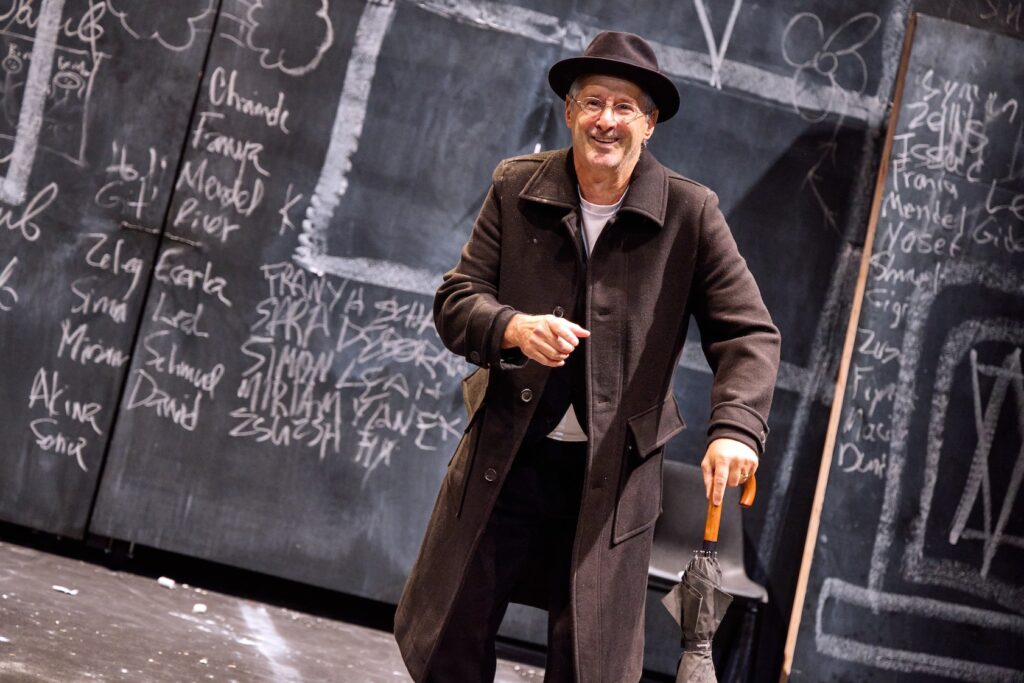Centered on the 1941 Jedwabne Massacre of Jews in Poland, ‘Our Class’ Is Both Harrowing and Uplifting
For all the misery and hate ‘Our Class’ documents, it also reflects and celebrates our potential to rise above such things.

There’s been a lot of debate recently about what constitutes a genocidal attack, but here’s an example that should clear the bar for most folks: An estimated 1,600 people — many of them women, children, and elderly — are rounded up purely on the basis of their shared religion and ethnicity and herded into a barn, which is then locked and set on fire.
This atrocity occurred in July 1941 at a Polish village, Jedwabne, where locals, spurred on by the German forces who had invaded two years earlier, were the perpetrators and their Jewish neighbors the victims. By the time the Nazis put the finishing touches on the Final Solution six months later, even larger-scale pogroms had unfolded throughout the region, from Romania to Ukraine; in Kyiv, more than 33,000 Jews were lined up by a ravine and executed over the course of two days.
More than six decades on, a Polish playwright, Tadeusz Słobodzianek, drew on the Jedwabne massacre for “Our Class,” an account of 10 residents of the town — half of them Jewish, the other half Catholic, and all based on real people — who are born between 1918 and 1920, and meet as schoolmates. First produced in 2009, the play follows these characters through the horrific events of the 1930s and ’40s and the rest of their lives — some of which, predictably, are cut tragically short.
For the play’s New York premiere at the Brooklyn Academy of Music last winter, a Ukrainian-born, Jewish director, Igor Golyak, and his company, Arlekin Players, used an adaptation by Norman Allen to offer a distinctly contemporary, surprisingly exuberant, tremendously moving take. That staging has now arrived, with a few minor cuts, at Classic Stage Company’s more intimate space at the city’s Union Square, and it is just as harrowing and uplifting as before.
The new venue, with its relatively cozy thrust stage, brings the audience even closer to what is already a deeply personal account of bonds forged in youth and then tested by some of the most egregious developments of a violent century. The actors, all of them superb, acknowledge us on occasion; when Abram, the one Jewish character who escapes to America in time — played by the stage and screen veteran Richard Topol — bid his friends goodbye at a recent preview, Mr. Topol approached a viewer with a camera to capture the moment.

Mr. Golyak generally doesn’t stomp on the fourth wall, however; instead, he and his design team craft another world that feels at once accessible and nightmarish. The dominant feature in Jan Pappelbaum’s stark set, which doesn’t suggest any specific place or time, is a vast chalkboard, where rudimentary illustrations pop up as notes indicate the passing years, which are also marked by the play’s division into different “lessons.”
The projection and video design, by Eric Dunlap and Mr. Golyak, are also used, eventually, to emphasize the outsized ugliness at hand. In Act Two, we see one of the Catholic characters who commits unspeakable crimes earlier in the play, Heniek, in gruesome close-up; he is now a prominent priest, extolling virtues he spat on in his youth in Will Manning’s chillingly glib portrait.
Elan Safir is more fiery as the equally reprehensible Zygmunt, who betrays his Jewish and Catholic friends alike, while Ilia Volok brings a ragged pathos to the part of Władek, whose antisemitic leanings are dulled by his desire and genuine affection for a Jewish woman. Alexandra Silber delivers her usual zest and great tenderness as his love interest, Rachelka, who must make unimaginable choices in order to survive, and Gus Birney is girlish and haunting as Dora, who is denied such options.
Throughout the play, which clocks in at just less than three hours with an intermission, these characters — the Catholics in particular, and none more so than the tortured Władek — take pains to remind each other of their defining and fundamental alliance. “Classmates are like family,” Zygmunt says at one point. “Better than family.”
These words are not entirely ironic: There is a sense of kinship that endures even as the members of this group are divided and, in various ways, shattered; and for all the misery and hate “Our Class” documents, it also reflects and celebrates our potential to rise above such things. Following the authors’ lead, Mr. Golyak and his cast find joy in unlikely places — right up to the end, when an aged Abram holds the stage, triumphantly counting his blessings.
In a letter to Rachelka, recited just before that, Abram recalls telling another classmate, when they were very young, that “faith is the greatest of God’s gifts, a gift from the hands that hold all things, from beginning to end.” You needn’t be a believer to be moved by his words, or by how he and others in “Our Class” confront challenges that seem all too timely.

